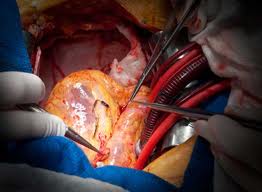Latest news on Cardiac surgery
Patient care in cardiac surgery begins with a thorough and precise diagnostic evaluation to define the anatomy and hemodynamic abnormalities of that particular patient. Although an evaluation has usually been performed by the referring cardiologist, it is the surgeon’s responsibility to ensure that the evaluation is complete and that all the information needed to plan, the surgeon must also identify the patients coexisting diseases to minimize their risk on surgical outcome. Recently, there has been the shift toward outpatient preoperative management of elective cardiac surgical patients that can complicate the preoperative preparation process.
Because the patient is not admitted to the hospital until the day of the operation, it is important to develop a system that ensures that all preoperative issues are addressed prior to the time of surgery. This includes a comprehensive preoperative history and physical examination, risk assessment, abnormal laboratories values and patient teaching regarding the planned operation.
The outcome of CABG depend on many modifiable, and many uncontrolled factors. Age, sex, and concomitant valvular replacement cannot be changed. However, technical skills, experience of surgeons and the surgical teams, severity of co-morbidities can be altered with more training more resources, more man power and more focused management before, during and after surgery. In a small CABG program, it is may be wise to avoid the too severe, moribund patients as their mortality is indeed too high with either medical or surgical management. CABG cannot save every patient with end stage coronary artery disease CAD, refractory primary coronary interventions PCI with poor LV function, and lack of bypass able run offs.
If the patient is really high risk, then the patient should be transferred to a larger referral center, with more experience, more man power and higher patient load to dilute the high mortality rate of these extremely sick patients. There are a few surgeons and centers in the US who specialize on difficult cases with third or fourth re-operations. With their experience and because of their exceptional focus on high risk cases, with the help of a dedicated team their results are quite impressive. The patients whom a small program should follow advise from doctors.


